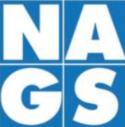ASA Upholds Complaints Against Mobile App Game Operator Hutch Games or Failing to Disclose Presence of Loot Boxes
 UNITED KINGDOM (October 5, 2023) — The UK Advertising Standards Authority has upheld a complaint against Hutch Games Ltd, a mobile app game operator, for misleading app store listings that omitted material information regarding in-game random item purchasing, known as “loot boxes”. Sophie Stoneham and Will Deller explore the issue and provide key take-aways on the ASA ruling.
UNITED KINGDOM (October 5, 2023) — The UK Advertising Standards Authority has upheld a complaint against Hutch Games Ltd, a mobile app game operator, for misleading app store listings that omitted material information regarding in-game random item purchasing, known as “loot boxes”. Sophie Stoneham and Will Deller explore the issue and provide key take-aways on the ASA ruling.
Background
Hutch Games Ltd operates two mobile app games, one called Rebel Racing and another called F1 Clash – Car Racing Manager. The former allows players to customise their cars, race other players and compete in tournaments; whilst the latter is a F1 team management simulator. Both games are free to download, but each contains in-app purchases.
Each game was listed on a mobile app store, with text stating that the game included in-app purchases. Of these in-app purchases, users could buy loot boxes, but this was not made clear in any description of the sorts of in-app purchases available. By opening a loot box, users received a random item (with varying degrees of probabilities).
Loot boxes could be obtained in several ways:
- purchasing with real money
- purchasing with in-game currency (“keys” in Rebel Racing and “bucks” in F1 Clash – Car Racing Manager) which could be earnt through gameplay
- as a free gift
What was the issue?
The ASA referred back to their “Guidance on advertising in-game purchases.” This guidance states that the presence of in-game loot boxes is considered ‘material information’ in a relation to a consumer’s decision on whether or not to download a game. This was particularly the case for consumers with vulnerabilities (such as gambling). Accordingly, the presence of in-app purchases (particularly, loot boxes) must be clearly disclosed in advertising.
Hutch Games asserted that they had understood the above guidance to mean that if virtual currency could be earned in-game, regardless of whether it could also be purchased, the in-game storefront and any inducement to purchase items (whether featuring within the game itself or not) would fall outside of the scope of the CAP Code. However, the ASA made clear in its ruling that this was only the case in respect of in-game advertisements (such as in-game storefronts), but that the listing on the app store was not an in-game advertisement, meaning that this carve-out would not apply.
On that basis, the ASA held that Hutch Games did not make clear that either game contained loot boxes. This was in breach of the CAP Code because the ads misleadingly omitted material information that should have been provided to the consumer. The disclosure of “in-app purchases” alone was not sufficient to inform consumers of the loot boxes. As per its standard approach, the ASA held that the ads should not appear again.
Key take-aways
- The ASA considers product listings on app stores to be within scope of the CAP Code.
- The presence of in-game purchases and loot boxes must be clearly flagged in game advertising.
- The ASA is enforcing under its guidance for in-game purchases.
- Where a game incorporates virtual currencies/items that can be acquired without payment as well as purchased, advertisements for such currencies/items are only outside of the scope of the CAP Code to the extent those advertisements appear in-game.
- There is a growing regulatory interest in loot boxes in the UK. In July 2023, ukie published 11 guiding principles for the gaming sector to follow in relation to loot boxes. For example, that games should implement technical tools to limit under 18 year olds from obtaining loot boxes.
- Ad campaigns should be legally reviewed prior to launch to assess for Cap Code compliance.
ASA Ruling on Hutch Games Ltd (Rebel Racing) Upheld.
ASA Ruling on Hutch Games Ltd (F1 Clash – Car Racing Manager) Upheld.
By: Sophie Stoneham and Will Deller
SOURCES: Bird & Bird LLP / LEXOLOGY
Tags: ASA, Hutch Games Ltd, in-game loot boxes

























